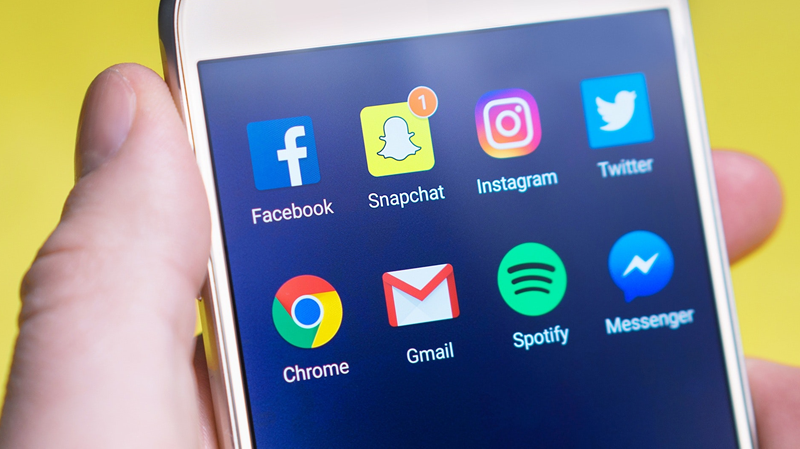The good and bad of social media
Social media brings some wonderful benefits. It has changed the way we communicate with each other. We can share what matters to us with our friends immediately. It has the power to motivate people. It allows young people to have a voice and to explore new concepts.
But there is a flip side to social media. Mental health disorders are increasing in children and young people. Social media has been cited as one of the exacerbating factors.
A recent survey of nearly 10,000 young people was published by the NHS (Mental Health of Children and Young People in England) in 2018. It found that one in eight young people had a mental health disorder. It also identified the factors that could cause mental health problems in children and young people, and social media was one of these.
How does social media affect children's mental health?
Social media usage can negatively impact the mental health of young people. Here are three reasons why.
1. Sleep
Sleep is fundamentally important for young people and the development of their adolescent brains. Lack of sleep can lead to lower mood and depression.
It is not known whether the blue light from tablets and phones affects sleep quality, whether lack of sleep stems from the amount of time young people spend on social media, or if it’s the behaviour pull that makes young people wake to check their phones.
Whatever the reason, it’s important to think about and address how social media impacts young people’s sleep.
2. Life comparison
Young people use social media to compare themselves to others. Some young people use it as a gauge of how they measure up to those around them. They look at other people’s pictures and lives and compare them to their own. This can be harmful for mental health.
Social media is often used to share life’s highlights rather than everyday activities. But this can mean that highlights are seen as the norm. People tend to post things when they are feeling positive and trawl through other people’s posts when they are feeling low. This strengthens the perception of how exciting other people’s lives are and can lead to feelings of worthlessness.
3. The need for likes to boost self-worth or self-esteem
It feels great when someone ‘likes’ a selfie or a picture you have taken. But this obsession for praise can get out of control. Young people are self-aware and some will post hundreds of pictures in order for people to validate them. This is not allowing young people to develop a secure sense of self that is not dependent on other people’s ideas of what they should look like.
Being very active on social media and posting numerous pictures or status updates, then worrying about what other people think, has been linked to anxiety, poor body image and poor mental health. The fixation with how other people will react to posts can lead young people to feel unsure about their value in life. They may start to worry about their physical appearance or about their lives in general. The NHS survey found that girls had concerns about their body image which can be exacerbated by social media. One in 18 women aged 17 to 19 had body dysmorphic disorder. This is worrying, although it cannot all be put down to social media.
The survey also stated that girls and young women aged 17 to 19 are more than twice as likely to have a mental health disorder than boys in the same age group, and half of those girls said they had self-harmed or attempted suicide. It is now being found that social media platforms are being used to promote suicide, self-harm and depression amongst young people. Social media platforms have been found to carry messages that seem to glorify suicide, suicidal thoughts, depression and self-harm. These messages are easy to come by and not hidden within these platforms.
Pictures on social media often attract negative or detrimental comments. People are very quick to say mean and hurtful things, especially if they are hiding behind an online identity. Young people could be more at risk of cyberbullying, which has been linked to depression and even suicidal thoughts and behaviours. The NHS survey found that children and young people aged between 11 and 19 spent more time on social media, and one in five in the same age group said they had been cyberbullied in the last year.
What teachers can do
Here are some ideas of how you can talk about social media with young people.
-
Discuss the importance of using social media in a healthy way. Talk about how important it is not to seek approval from people online, and that it isn’t realistic to compare your own lives to the edited, superficial versions of lives you see online.
-
Explain how social media can potentially impact on sleep. Encourage a culture where devices are switched off at night. This is reiterated by the Royal College of Paediatricians and Child Health, who published its first guidance for parents in early January 2019. It looked at how long children should spend on their tablets or phones. It concluded that spending time looking at screens was not fundamentally bad for health as long as parents made sure that their children got enough sleep, exercise and family time.
-
Reiterate that social media is not the only way to be sociable and interact with people. There is a real world out there!
Social media is an amazing tool. However, it’s important to acknowledge the impacts of it on children and young people. Digital media giants also need to take responsibility for what is posted on their sites. The government is beginning to address this – they have pledged a real-terms funding increase of at least £2bn for mental health services in England by 2023–24.

